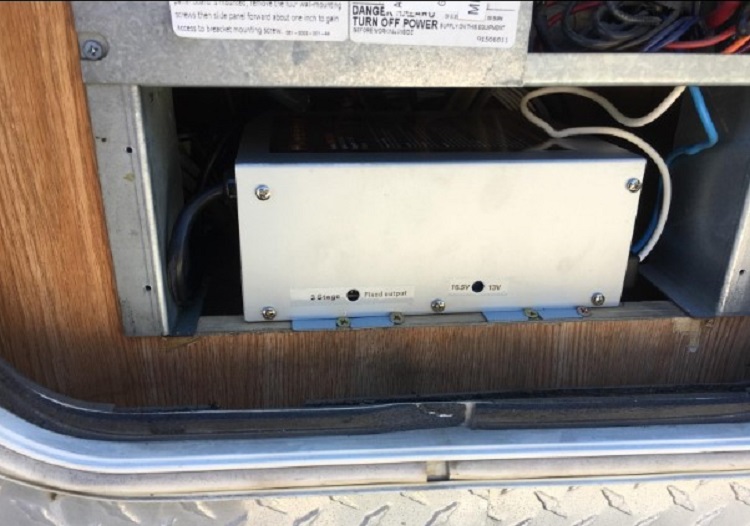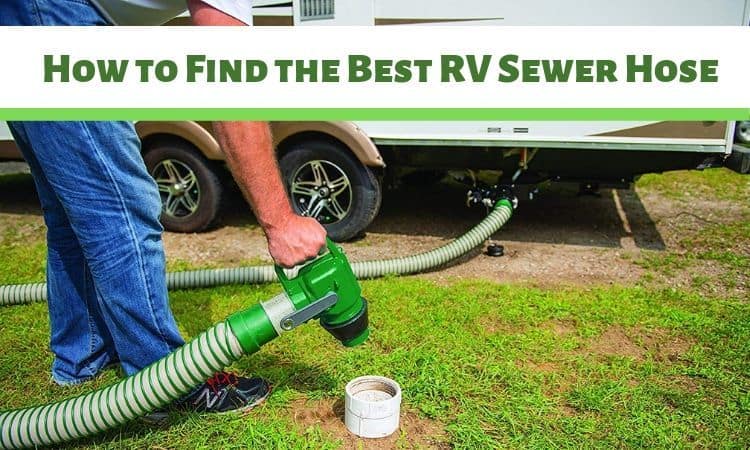RV Generator Won’t Start Troubleshooting Guide
- How to Find the Best Small Camping Trailers with Bathrooms - September 15, 2022
- Best Cold Weather RV: Best RVs for Cold Weather RVing - September 14, 2022
- Truck Camper vs Travel Trailer: Which Is The Best For You? - September 14, 2022
Maintenance is one of the frequently overlooked tasks of owning an RV. While RVing may appear to be a glamorous and simple lifestyle, there is still labor to be done and upkeep to be kept up with. The generator is a typical source of frustration for many RVers. As electricity can be dangerous, I don’t recommend to go poking around your generator right away.
There are simple causes for your RV generator not starting, and I’ll go over the most prevalent ones in this post. This is not an exhaustive list. These are just some of the most frequent reasons why your RV generator won’t start, and they’re an excellent place to start if you’re having problems.
To be honest, problems that aren’t on this list generally need the assistance of a qualified expert to identify and correct. As I said before, electricity can be dangerous if you don’t know what you’re doing.
We couldn’t simply leave you with a list of problems, though; I’ve also added some recommendations and next steps to take. So continue reading, and perhaps we’ll be able to assist you in getting your RV generator up and running in no time.
Low Oil
Your generator, like many mechanical systems, requires oil to function correctly. If the oil level is low, the generator’s many components will not be adequately lubricated and will come to a stop. When this happens, they will malfunction or just stop operating.
To be fair, you should keep a regular schedule for changing your oil. This is the best way to make sure you won’t have anything break. The generator, like many automobiles, should include an oil dipstick for checking oil levels. You should being by checking your oil if your generator is acting strangely or won’t start.
What to Do
Even though generators utilize conventional motor gasoline, not all of them use the same kind. Check your RV owner’s handbook to discover what sort of oil you should put in the generator if the oil is low.
You can always top off the oil yourself, but if it’s exceptionally unclean, you’ll need to replace it. Replacing the oil can be tricky. You’ll need to find the oil plug and dump the oil. Bring it to a mechanic if you’re unsure how to do it properly, as replacing your oil wrong can hurt your engine.
Battery Problems

The generating system is not complete without a battery. It is, after all, the reason the generator works at all. This makes the battery the first thing to look at.
For the built-in battery to start, it needs power from the main house or coach battery. Checking these cables is essential; if you notice any break, bend, or tear, that may be your issue. If the battery isn’t fully charged or the connections aren’t properly connected, and tight, the generator may not start at all.
What to Do
If you think the battery is the problem, make sure it’s completely charged first. You can check this by using a multimeter. Check all of the connections if that isn’t the issue.
Are all of the connections clean and secure? If they aren’t, you may need to adjust them and clean them. Next, check to make sure nothing is draining the batter; if you accidentally leave the battery on, it can lead to your battery being drained.
There’s also the potential that parts of the battery are damaged or leaking, so double-check everything. The battery may just be old and worn out in some situations. This is also true with vehicle batteries. As a result, you may need to replace the battery altogether.
Air Filter
The air filter in your RV is a crucial component. This is the part that makes sure the air your engine is receiving is clean. When it is not clean, your engine will not produce energy at its vital efficiency.
When it is dirty for long periods, it can cause your generator to stop running altogether. This often happens after letting your generator sit for long periods.
What to Do
This is a job you will be able to do entirely by yourself, as long as you know where the air filter sits in your generator. If not, do some simple research, and you should be able to find it. Remove the air filter retainer’s thumbscrew by turning it clockwise. Remove the screw and lid in a straight line. Remove the air filter and inspect it for any dirt or dust.
To remove loose material from the air filter, use an air compressor to blow it out. Replace the filter with a new one if it has any tears. Replace the lid, tighten the thumbscrew clockwise, and reinstall the air filter in the retainer.
Low Fuel in RV Tank

There won’t be enough gasoline for the generator if your RV’s fuel tank drops below a quarter of a tank. As a result, if the RV fuel tank is too low, the generator will not start. The generator in your RV can run on diesel, gas, or propane. Usually, it has a direct line with your gas task. If you are mechanically adept, you should be able to see this from under the vehicle.
If the gasoline level in your RV drops too low, most generators will shut down to save your RV from running out of fuel. Otherwise, you’d be stranded since you left your generator running all night and ran out of gas! If your generator runs on propane, this won’t be a problem. However, if your generator stops operating, you should check the propane fuel level.
What to Do
Check your gasoline gauge first; if your tank is low, that might be the problem. This is a simple remedy because you can simply go to the nearest gas station and fill up.
If your generator still doesn’t start after you’ve added extra gasoline to your tank, you’ll need to investigate alternative possibilities. Check the battery next!
Old Fuel
Some RV generators are self-contained devices that do not have a gasoline line to your RV’s fuel tank. If this is the case, you should check the fuel levels of your generator. A typical occurrence is that the gasoline in the generator has been sitting idle between travel seasons and is just old. You can only store the fuel for a certain amount of time, so your generator will not work if it is too old.
This often happens on people’s first trip after a long time. Let’s face it, you came home and just crashed; you totally forgot to empty the old fuel from your generator. Now, when you leave for your next trip, the fuel will be old and grimy and won’t work!
What to Do
The only thing you can do is either add or replace the existing fuel in the tank. Before you do this, make sure you read the user’s handbook! The generator can be destroyed if the wrong sort of fuel is used (this can be another “why” your generator won’t run).
If the gasoline in the generator appears to be old rather than low, the fuel filter may also need to be replaced. Suppose you don’t have much mechanical experience. In that case, it’s probably better to take the generator to a technician to have the old fuel replaced. Before adding fresh gasoline, they’ll be able to thoroughly clean the tank and replace the fuel filter.
If you do have mechanical experience, then, by all means, go for it! Simply drain your old fuel and clean, or replace, the filter. Refill and hit the road!
Replace Parts

So an RV generator’s fuel, battery, and oil concerns aren’t the only things that may go wrong. These are the most typical causes of generator failure and the first things to look for if your generator stops working.
Once you’ve decided that it’s nothing simple, you begin to get into the real meat of your generator: a part breaking.
This can happen for many reasons. Your generator may be old, it may not function correctly, you’re overusing it, who knows! Parts can and will break for almost no reason. When they do, though, it’s helpful to know the anatomy of your generator so you know what’s broken.
What to Do
This will either require some troubleshooting on your part or the assistance of a mechanic to determine the problem. Like anything, diagnosis usually takes the longest time. You might be able to tell whether there is any corrosion or if anything is loose or damaged by looking around at some of the connection points or essential moving elements.
It might be challenging to figure out what’s wrong on your own if there isn’t any visual, physical harm. If this is the case, you can try and take your generator apart or take it to a mechanic. As I keep mentioning, you should only attempt to fix it if you feel like you have the skill.
Just Old
Everything mechanical has a shelf life. You can extend the life of machines by providing them with the necessary care and maintenance. Still, they will ultimately need to be replaced. If you’ve owned your generator for an extended period, it may be just worn out. If you bought your generator used, this is also something to think about.
You may not know how much it’s been used or how well it’s been cared for. If you purchased, it used, except that it may have been used more than you thought.
What to Do
Purchase a new one! Make every effort to repair the old one, and consider taking it to a technician to see if it can be fixed. You must understand that sometimes the best thing to do is buy new, rather than keep fixing the old one!
If at all feasible, I recommend repairing it, although RV generators do wear down over time. If this describes your situation, it’s time to go shopping.
General Maintenance

Like our automobiles and other motorized vehicles, RVs require regular maintenance to be in top working condition. Although not all parts of the RV need constant care, you should take the time to ensure that the generator is in good working order.
Several elements of an RV’s generator can fail, rust, or just become worn out with use and time. Specifically talking, inspecting all the connecting cables, rubber hoses, and fluids that keep it functioning regularly is essential. It’s possible that something is blocked or that the antifreeze level is low. All of these elements may be checked during a routine maintenance inspection. This can include hoses, often gas or oil can get clogged if it is old.
A well-maintained generator will, in most circumstances, outlast other components of your RV.
I will say, though, Some things are unavoidable. Eventually, something will break. Just stay ahead of the game. Keep checking everything way before it needs to be checked. I think that’s the best advice anyone could tell you!
FAQs
Question: Why Is My RV Generator not Starting?
Answer: Your RV generator may not start for a multitude of reasons. The first is the most common and probably the battery. If it is not a faulty battery, it could be low fuel levels, low or old oil, or you need a new air filter.
Question: How do I Reset my RV Generator?
Answer: Resetting your RV generator is different depending on what kind of generator you own. Many have a reset button/pin on them that can be pushed. If this is not the case, look in your owner’s manual, and it should have step-by-step instructions.
Question: How do I Prime my RV Generator?
Answer: Priming your RV generator can be done via the priming button. You should hold this down for 2-4 seconds around three or four times. Once the generator is fully primed, you are ready to fire it up!
Question: What Would Cause a Generator not to Start?
Answer: There are many reasons your generator may not start. This is usually because of faulty battery or fuel problems. If it is neither of these, you should look at your oil levels and your air filter.
RV Generator Won’t Start Troubleshooting Guide: Final Thoughts
While RVing is an excellent hobby for do-it-yourselfers, some tasks should be left to the professionals. The generator difficulties in many of the cases we described above might be resolved on your own. Fixing your oil, fuel, and batteries is all straightforward. Even for those with little to no experience, a simple trip to YouTube should have you on the right track to fix your own generator.
However, like with other mechanical issues, repairs and replacements can be time-consuming. If you can’t figure out why your generator won’t start or isn’t working, have it looked at by a professional. Usually, a professional can at least tell you what’s wrong with your vehicle. At least once you know what the diagnosis is, you can begin to do your own research to start fixing it.










